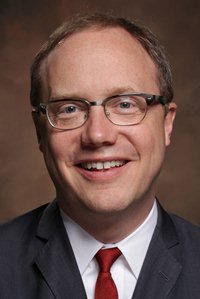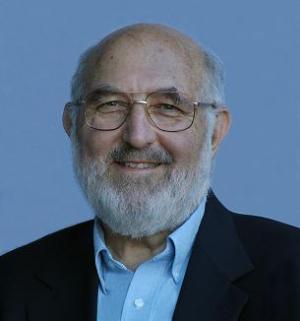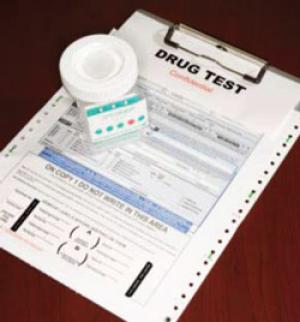The smart money is saying hold off on a California marijuana legalization initiative until 2016, but some will pay the price for waiting.
A federal magistrate in Massachusetts has slapped down a federal government effort to seize a motel because of limite drug activity there. That's a blow against asset forfeiture abuse.
FelonVoting.ProCon.org, part of the ProCon.org family, is an in-depth web site presenting information and views from a variety of perspectives on the issue felony disenfranchisement. The Chronicle is running a six-part series of info items from ProCon.org, of which this week's is the fourth.
The Czech parliament has approved a medical marijuana bill, and the Czech president is expected to sign it, but patient advocates have some problems with some of its provisions.
The agonizingly slow pace of implementing medical marijuana laws is causing problems in several states, while in California, the never-ending battles continue.
It's drug testing bill time in state legislatures again, and a measure to drug test welfare recipients now awaits a Senate floor vote in Virginia.
It may soon be harder for patients to get access to hydrocodone-based pain relievers like Vicodin after an FDA advisory panel recommended moving them from Schedule III to Schedule II in an effort to prevent overdoses and addiction.
A bipartisan marijuana legalization bill has been rolled out in New Hampshire. That's one of at least six states where similar bills have been or will be filed this year.
College athletes who like to toke up, take note! The NCAA is making it easier for you to test positive and, while it will lower the penalty, that lower penalty won't take effect for another year.
"What are you in for?" "Possession of Marlboros." That could be the case under a new bill filed in Oregon.
Narcs gone bad, evidence gone missing, cops gone over to the other side, and another jailer in trouble. Just another week in the drug war.
If the first day of the California NORML state conference is any indication, most of the major players in Golden State marijuana law reform are lining up behind the idea of waiting until 2016 to try another legalization initiative there. They have some good reasons, but not everybody's happy with that, and some heart-rending reasons why that's the case were also on display as California marijuana activists gathered in San Francisco for day one of the two-day event.

Stephen Gutwillig, Dale Gieringer, Paul Armentano
Richard Lee's groundbreaking Proposition 19 garnered 46.5% of the vote in the 2010 off-year election, and no marijuana legalization initiative campaigns managed to make it onto the ballot last year, although several groups tried. Meanwhile, Colorado and Washington beat California to the Promised Land, becoming the first states to legalize marijuana in last November's election.
Now, California activists are eager to make their state the next to legalize, but crafty movement strategists are counseling patience -- and trying to build their forces in the meantime. The Prop 19 campaign made a strong beginning, bringing in elements of organized labor and the black and Hispanic communities, as well as dissident law enforcement voices, to help form a coalition that came close, but didn't quite make it.
As
CANORML deputy director Ellen
Komp reminded the audience at a Saturday morning panel on what comes next for marijuana law reform, the people behind the Proposition 19 campaign have formed the core of the California
Coalition for Cannabis Policy Reform in a bid to forge unity among the state's diverse, multi-sided, and sometimes fractious marijuana community -- and to encourage new voices to join the struggle.
For the
Marijuana Policy Project, California is a big prize, but only part of a broader national strategy, and one that should most likely wait for 2016, said the group's executive director, Rob
Kampia, as he explained its plan to push legalization bills in state legislatures in four states (Hawaii, New Hampshire, Rhode Island, Vermont) this year and beyond, but not pushing legalization initiatives anywhere but Alaska in 2014.
MPP is envisioning a big legalization initiative push in 2016 instead, setting its sights on seven states, including California, when the presidential election pumps up the vote. (The others are Arizona, Massachusetts, Maine, Montana, Nevada, and Oregon.)
"There's a big demographic difference between 2014 and 2016," said
Kampia. "If we do 2016, it's ours to lose."
The Drug Policy Alliance, another major player with access to the big-time funding that can turn an initiative into a winner, also seemed to be looking to 2016.
"It's up to us how, where, and when marijuana prohibition will end," Steve Gutwillig, a DPA deputy executive director and former California state director told the full house at the Ft. Mason Conference Center, "but the presumption is 2016, more than 2014. We need to run a unified campaign, we need to build the base and do alliance-building among people who are already convinced."

spontaneous fundraiser for Daisy Bram

Omar Figueroa, Michael Levinsohn, Daisy Bram
back to top
special to Drug War Chronicle by investigative journalist Clarence Walker, [email protected]
In a major victory for property rights advocates, a federal judge in Massachusetts last week struck down a scheme by federal prosecutors to seize a motel owned by the Caswell family on rundown Main Street in Tewksbury. The ruling in US v. 434 Main Street, Tewksbury, Massachusetts should make it more difficult for the government to seize a person's property if third parties committed criminal offenses on that property without the property owner's knowledge.

The ruling reinforced longstanding complaints that the use of asset forfeiture statutes -- both federal and state -- is so broad as to be tantamount to an abuse of power. Under such laws, prosecutors file civil actions seeking to seize the property of accused criminals as the fruits of crime, but they often result in citizens being deprived of their property without ever being convicted of a crime, sometimes even without ever having been arrested.
"People better wake up to what's going on with the government taking property under this federal civil forfeiture law," said Russ
Caswell, 69, longtime owner of the
Caswell Motel. "I was never charged with a crime and I never participated in no drug crimes on my property," he told the Chronicle Sunday. "Neither did the police tell me that my business was a problem, plus we often reported to police about criminal activity on the premises, but they still tried to take my property. I am thankful to God and my attorneys that this nightmare is over."
The
Caswell Motel isn't the Hilton -- like countless thousands of other low-end motels on gritty streets across the country, it offers rooms by the week, and its clientele includes itinerant construction workers, traveling salesmen, the just-up-from-homeless, and, yes, the occasional drug user or peddler.
US Attorney Carmen Ortiz had sought to seize the Motel
Caswell from the
Caswell family under the theory that the motel allegedly facilitated drug crimes. The government provided evidence of 15 drug-related incidents between 1994 and 2008, rousing US Magistrate Judith
Dein to note tartly in her opinion that "it should be noted that during this 14 year period, the Motel
Caswell rented out approximately 196,000 rooms."
Dein found that
Caswell "did not know the guests involved in the drug crimes, did not know of their anticipated criminal behavior at the time they registered as guests, and did not know of the drug crimes while they were occurring."
The government argued that the
Caswells had failed to cooperate with police to alleviate drug problems at the property, but
Dein cited numerous examples of the motel's cooperation with
Tewksbury Police, and also noted that "there is no contention in this case that anyone from the
Caswell family has been involved in any criminal activity either at the Motel or elsewhere. It is undisputed that they are a law-abiding family. Mr.
Caswell testified that he had never been charged with any crime in his life."
Then
Dein blistered the prosecution.
"It is rather remarkable," she wrote, "in this court's view, for the Government to argue in this case that the Property owner should lose his property for failure to undertake some undefined steps in an effort to prevent crime, while putting on evidence that the police drove through the Property routinely, knew the Property owner's identity and that he lived next door to the Motel, and never contacted him in an effort to work together to control crime at the Property. No comparable cases have been cited by the parties, and none have been found. Having failed to notify Mr.
Caswell that he had a significant problem, and having failed to take any steps to advise him on what to do, the Government's resolution of the crime problem should not be to simply take his Property."
The federal magistrate then flatly dismissed the government's case. "The Government has failed to meet its burden of establishing that the Motel is subject to forfeiture,"
Dein found. "In addition, this Court concludes that the Claimant has met his burden of proving that he is the innocent owner of the Property."
Attorneys and asset forfeiture critics applauded the decision. Darpana Sheth, a Virginia-based pro-bono attorney who assisted with the defense of the
Caswell Motel called the verdict "very important" and said it could have wider implications if other judicial districts and lawyers pick up on it.
"This decision will make it tougher for the government to initiate forfeiture proceedings or file complaints based on the actions of third parties," she said.

Scott Bullock (ij.org)
"This is a complete victory for the Caswell family and for the protection of private property rights," said attorney Scott Bullock, after Dein's ruling. Bullock, who represented the family, is a senior attorney for the
Institute for Justice (IJ), a Virginia-based public interest law firm specializing in fighting federal and state forfeiture abuse nationwide.
Caswell definitely needed the Institute's help, his family's limited resources having been eaten up in earlier stages of their battle with a relentless federal prosecutor.
"After running out of money after spending over $100,000, my local attorney discovered the Institute for Justice on the Internet," said Caswell."Had it not been for the Institute representing me pro-bono, I would have lost the motel and my livelihood."
While the Institute is a bulwark of the fight against asset forfeiture abuses, it is perhaps best known for its David vs. Goliath victory over billionaire Donald Trump in an Atlantic City eminent domain case in the 1990s. In that case, the Institute successfully represented a property owner whose land Trump wanted for a parking lot for his casino and hotel, blocking Trump's plan and saving the property.
The Caswell Motel case also opened a window on unsavory practices around asset forfeiture and raised questions of "policing for profit." Although Caswell attorneys argued -- and the court agreed -- that the family had cooperated with police to alleviate the drug problem, someone tipped the DEA to a potential target. The property had an estimated value of between $1.5 million and $1.8 million. Through the federal asset forfeiture "Equitable Sharing Program," state and local law enforcement agencies involved would have received 80% of the value of the Caswell property, with the feds reaping the other 20%.
"What the government did amounted to a grab for quick cash under the guise of civil forfeiture," said attorney Larry Salzman, another IJ attorney.
The workings of the asset forfeiture machine were partially revealed in the deposition of Vincent Kelly, DEA Special Agent in the New England office asset forfeiture unit. He testified under oath that his job was to look for high-dollar property with no mortgage to be forfeited. Kelly explained clearly how he checked the Registry of Deeds "to find out who owns the property and how much equity is on the property." Then, the DEA would contact local police to see how many drug arrests or other serious crimes been committed on the property.
Kelly said it was DEA policy to deal only with property worth at least $50,000.00. With Caswell Motel's worth between $1.5 and $1.8 million dollars, it was ripe for forfeiture since many drug arrests had occurred there.
In another sign that the motel had been the target of selective prosecution, defense attorneys and the Lowell Sun also uncovered evidence that at one point, narcotic officers and police made more arrests on the premises of Walmart, IHop, and Home Depot, nearby businesses also located off I-95 on Main Street. From 2010-2012, the attorneys said 19 drug arrests were made at Caswell Motel, with 24 drug arrests on Walmart's premises, 14 at Home Depot and five each at Applebee's and Burger King. But those are all deep-pocketed corporations with legions of lawyers; the Caswell family and its motel was not.
The Caswell Motel case is only an especially egregious example of asset forfeiture abuses. For years, attorneys, community activists, and advocacy groups, such as Forfeiture Endangers Americans Rights (FEAR) and Americans for Forfeiture Reform have been fighting to reign in such prosecutorial misconduct, and some progress has been made.
Some states implemented higher burdens of proof for police to seize property or acted to reduce the incentive to police for profit by directing that all or some seized funds go to the state general fund or education fund -- not straight into police coffers. And some states require an actual conviction before civil asset forfeiture can proceed.
But facing increasingly tougher standards and regulations, state and local law enforcement have learned to hand their cases over to the feds, ensuring that the cops get their cut under the equitable sharing program, but in effect robbing state governments of funds that should have gone to them. According to a Cato Institute study, as of 2008, the Justice Department's forfeiture fund reached $3.1 billion, with less than 20% of property seized coming from cases where the owners were prosecuted.
At the federal level, things are a bit better than they used to be, but it clear that room for abuse still exists, as the Caswell case demonstrates. Prior to federal asset forfeiture reform legislation passed in 2000, seizures could be made on mere suspicion that the property was involved in a crime. Once that happened, the property owner had to prove by a "preponderance of evidence" that the property was not involved in a crime.
Ironically, it was the attempted seizure of another motel, the Red Carpet Inn in Houston, Texas, that helped lead the way to passage of the Civil Asset Forfeiture Reform Act of 2000. In that case, the feds seized the motel in 1998, claiming it was a "drug haven."
Like Caswell, Red Carpet owner Jason Brice had complied with police by hiring security and allowing police to patrol his property, and had spent thousands of dollars to comply with law enforcement demands that the motel discourage drug dealing. But when Brice balked at raising room rates and then revoked permission for police to patrol the property, the feds moved in with a civil forfeiture claim. Brice won in court, but only after years of stress and hundreds of thousands of dollars in attorneys' fees.
Led by then Rep. Henry Hyde (R-IL) and inspired by cases like that of the Red Carpet Inn, Congress finally acted in 2000, passing the first effort to rein in asset forfeiture abuse at the federal level. The reforms include the "innocent owner" defense that Caswell successfully used in its trial.
But the civil asset forfeiture machine that grew out of Ronald Reagan's 1980s drug war keeps on humming. When the Department of Justice's Asset Forfeiture Fund to split seized goods with local and state law enforcement started in 1986, it took in $93.7 million. Last year, it took in $1.5 billion. That is a real and continuing incentive to pervert policing in pursuit of profits.
"It's like stealing your property in a hold-up without a gun," summed up Russ Caswell. "It goes back to our founding fathers. What happened to me was so un-American."
Someone needs to tell US Attorney Ortiz, who has not yet given up the fight for the Caswell Motel. On Tuesday, her office said "we are weighing our options with respect to appeal." They have until March 15 to file, and until then, Russ Caswell and his motel still aren't in the clear.
back to top
Did you know that drug cases accounted for nearly a quarter of all people incarcerated for felonies as of 2008, and more than half of all federal felony incarcerations? Read the details in "Incarcerated Felon Population in the US by Type of Crime Committed, 1974-2008," on the web site felonvoting.procon.org, part of the ProCon.org family.
This is the fourth in a six-part series of ProCon.org teasers being published in Drug War Chronicle. Keep tuning in to the Chronicle for more important facts from ProCon.org the next several weeks, or sign up for ProCon.org's email list or RSS feed. Read last week's Chronicle ProCon.org highlight piece here.
ProCon.org is a web site promoting critical thinking, education, and informed citizenship by presenting controversial issues in a straightforward, nonpartisan primarily pro-con format.

back to top
The Czech Senate Wednesday approved a bill allowing for the medical use of marijuana by an overwhelming margin of 67-2. The measure had already passed the lower house of parliament.
The bill passed with support from all the political parties represented in the parliament. Newly-elected Czech President
Milos Zeman is expected to sign it into law.
But while medical marijuana advocates are pleased that their government has moved to legalize the use of the herb for medicinal purposes, they are less happy with a provision that says only imported marijuana will be allowed to be sold for the first year "to ensure standards." That will make medical marijuana too expensive while enriching the black market and the few companies that will be selected as official traders of it.
"It's legal, pharmaceutical and economic corruption," said
Dusan Dvorak, a medical-cannabis activist who leads the nonprofit organization
Marijuana is Medicine. "The result of the law should be access to cannabis for research and medical uses. But the real result is that it won't be made available, it'll be more expensive, it'll bolster the black market and the mafia," he told the Wall Street Journal's
Emerging Europe blog.
"For a long time I've supported enabling the medical use of cannabis… but I have to say that I'm very disappointed by what we've got on the table today," said
Alena Gajduskova, the first-deputy Chairwoman of the Senate, who voted in favor of the bill despite reservations. "These medicines are proven; they're very efficient but shouldn't be a luxury good. That is completely unacceptable."
Gajduskova suggested that a solution would be to allow the country's "grandmother growers," who already have plants growing on their balconies and in their gardens to legally grow the plants, or at least remove the threat of criminal prosecution.
"A small amount of [marijuana] for personal use isn't criminalized, so if we're able to tolerate that, I don't see why we couldn't tolerate the senior 'grandmother growers' [for medical use]. And from the position of the Union of Patients of the Czech Republic, we'll work towards that goal," she said.
The Czech Republic is one of the most marijuana-friendly countries in Europe. Pot remains illegal, but in 2010, lawmakers removed all penalties for possession of up to a half ounce and cultivation of five or fewer plants. The following year, the government approved the use of medications using marijuana derivatives.
But it sounds like it still has some work to do on creating a viable medical marijuana distribution system.
back to top
The agonizingly slow pace of implementing medical marijuana laws is causing problems in several states, while in California, the never-ending battles continue. Let's get to it:
Arizona
Last Thursday,
dispensary operators asked lawmakers to crack down on compassion clubs, unregulated businesses that seek a "fee" from patients who seek to obtain medical marijuana. There are no provisions for the clubs in the Arizona Medical Marijuana Act, but they have popped up statewide as patients waited for the opening of dispensaries, which were delayed because of prolonged legal battles between medical marijuana advocates and recalcitrant state and county officials. At a news conference outside the State Capitol, dispensary owners and medical marijuana patients joined with advocates to ask that police, prosecutors and legislators target the unregulated clubs so patients receive their medication in a controlled and secure environment.
Last Friday,
Maricopa County appealed to the state Supreme Court to decide whether federal drug laws preempt the state's medical marijuana law. The move comes after a Maricopa County Superior Court judge ruled last month that federal drug laws don't stand in the way of public officials implementing Arizona's law.
On Tuesday,
Tempe police raided two compassion clubs, arresting the owner. The cops hit Top Shelf Hydro College after purchasing "large amounts" of marijuana there. The name of the other club wasn't mentioned. The clubs are not permitted under state law, but have sprung up as advocates became frustrated waiting for dispensaries to open. Arizona voters approved medical marijuana in November 2010.
California
Last Thursday,
US Attorney for Northern California Melinda Haag canceled a public appearance after hearing that she would be met by demonstrators. She canceled her appearance at Golden Gate University "at the last minute" after medical marijuana supporters announced plans to picket her talk. Three days later, at the California
NORML conference, Rep. Tom
Ammiano (D-San Francisco) took aim at the unpopular prosecutor, saying "I'm sorry to hear a house fell on her sister," a not-so-veiled reference to the Wicked Witch of the West in
The Wizard of Oz.
On Monday,
LA medical marijuana activists said they would support a city council dispensary initiative instead of moving forward with their own similar one. Representatives for Americans for Safe Access, the United Food and Commercial Workers Union and the Greater Los Angeles Collectives Alliance announced that they plan to campaign on behalf of the city’s proposal, which the city council is expected to vote this week to place on the ballot. That measure would only allow shops that opened before a 2007 moratorium to operate. Another initiative, also going to the voters, would allow most of the 500 or so currently existing dispensaries to stay open.
On Tuesday,
Butte County released draft cultivation rules. The new draft ordinance includes a six mature plant limit on county parcels between .4 and 1.5 acres and an 18 mature plant limit on parcels between 1.5 and 3 acres, among other things. A public hearing is set for February 12.
Also on Tuesday,
the San Diego city council voted not to drop pending dispensary cases as Mayor Bob
Filner ordered earlier this month, but will instead maintain the status quo until he introduces a new ordinance to regulate them within 30 days. City officials said a zoning ordinance similar to one adopted by the council in 2011 would be brought up for discussion. But that measure triggered a successful petition drive to repeal it.
Massachusetts
Last Wednesday,
the Malden city council approved an ordinance restricting the location of medical marijuana businesses. They cannot operate in commercial or residential areas, just industrial ones.
Also last Wednesday,
the Peabody city council voted to ban dispensaries. The unanimous vote came after Mayor Ted
Bettencourt worried aloud that the dispensaries would send the wrong message to Peabody youth. It becomes the eighth town in the state to ban dispensaries.
Michigan
On Wednesday,
the state appeals court ruled that patients can give small amounts of marijuana to other patients without breaking the law. The appeals court agreed with a Barry County judge who had dismissed charges against Tony Green after he provided less than 2 ½ ounces of medical marijuana to Al Thornton in November 2011. Both were qualified patients. The appeals court ruled in 2011 that sales are illegal; that case is pending before the state Supreme Court.
New Jersey
Last Thursday,
a Superior Court judge refused to appoint a monitor to supervise the state's stalled medical marijuana program, instead sending the case to the Appellate Division. Two patients had sued the state Department of Health last year, saying they were denied medication because the department took nearly three years to get the program under way. Their lawyers sought a monitor and court orders compelling corrective action. Now they will have to seek results from the appellate court.
Washington
Last Thursday,
the Longview city council passed zoning restrictions on collective gardens. The measure passed by the council restricts them to the Mint Farm Industrial Park and an area along Industrial Way. The city has a moratorium on the gardens, but it expires in March, and without the zoning restrictions, people would have been able to plant gardens anywhere after the moratorium expired.
back to top
A Republican-backed bill that would subject welfare recipients to drug testing has passed a second committee vote and now heads for the Senate floor. The bill was approved in the Senate Rehabilitation and Social Services Committee earlier this month and passed out of the Senate Finance Committee Tuesday on a 10-5 vote.
The bill,
Senate Bill 721, would require all 14,500 participants in the state's welfare-to-work program to undergo preliminary screening to assess their likelihood of drug use. Those flagged as potential drug users would then be tested by the Department of Social Services.
Failing a drug test would result in loss of benefits for a year, as would refusing to take one. But benefits could be reinstated if the person undergoes drug treatment. That provision was added in hopes of making the bill more palatable to the House, where a similar measure died last year.
"It's been toned down quite a bit from the original thing. "If there's welfare recipients using, we can help them with their addiction," said Sen. Frank Wagner (R-Virginia Beach) who sits on the Finance Committee. "You're hoping welfare payments are going to support families and not to purchase narcotics," he said in remarks reported by the
Washington Examiner.
But opponents of the legislation said drug testing welfare recipients stigmatizes poor people and unfairly targets them while not aiming at other recipients of government largesse, such as students who receive college tuition grants, small businesses that get economic assistance, or legislators who get their paychecks from the state.
"Why are Republicans so suspicious of poor people? It begs the question," said Sen. Louise Lucas (D-Portsmouth). "This is insulting. The fact is, very few of those who qualify for temporary public assistance use illegal drugs."
Virginia is one of at least a dozen states where bills mandating drug testing for public benefits recipients have been filed so far this year. That number is likely to increase as the legislative season gears up. Last year, about two dozen such bills were filed, but only one in Georgia passed.
Florida had passed a welfare drug testing bill in 2011, but it has been put on hold by a federal court judge while she considers whether to rule it unconstitutional as a
suspicionless search under the Fourth Amendment. Georgia, too, has put its bill on hold pending that decision.
The Virginia bill, however, seeks to avoid that constitutional problem by adding the preliminary step of screening in order to have a "reasonable suspicion" as the basis for the drug testing.
back to top
A US Food and Drug Administration advisory panel voted last Friday to recommend that popular pain relievers containing the opioid hydrocodone be moved from Schedule III to Schedule II of the Controlled Substances Act. Popular prescription drugs containing hydrocodone include Vicodin and Lortab.
That would put
Lortab and
Vicodin in the same schedule as morphine and
Oyxcontin, which contains
oxycodone.
If the FDA agrees with its advisory panel and reschedules
hydrocodone, pain patients using the drug will have to go the doctor's office to get prescriptions written twice as frequently as now. Schedule III drugs can be prescribed for up to six months at a time, while Schedule II drugs can only be prescribed for three months without another visit to the doctor.
The FDA has for years resisted efforts to tighten controls over
hydrocodone, saying it could limit patients' access to pain medicine, but as overdose deaths and addiction rates from prescription pain relievers have jumped in recent years, pressure has been mounting on the agency. The agency is acting now after receiving a request from the DEA to consider rescheduling.
The advisory panel's 19-10 vote received mixed reviews from experts consulted by the
Milwaukee Journal-Sentinel.
Andrew
Kolodny, a psychiatrist and addiction specialist who heads
Physicians for Responsible Opiate Prescribing lauded the vote, saying it will lead to fewer people getting addicted to opiates.
"Doctors have had a false sense of security (about prescribing the drugs)," said
Kolodny. "This is a clear message that
hydrocodone is addictive," he told the Wisconsin newspaper.
"It seemed pretty clear to me that the preponderance of the evidence supported rescheduling," said Peter
Kaboli, associate professor at the University of Iowa Carver College of Medicine.
But Jan Chambers, president of the
National Fibromyalgia and Chronic Pain Association, said she voted against the proposal because she has heard so much from family members of people who have committed suicide because they are in such pain.
"Millions of people don't have access to the pain specialist or the doctors who can prescribe these Schedule III drugs," she said.
And Lynn Webster, president-elect of the
American Academy of Pain Medicine, said putting tighter controls on
hydrocodone will reduce prescribing and abuse, but worried about the impact on pain patients.
"I hope chronic pain patients and acute pain patients don't suffer as a result," said Webster, who spoke at the panel hearing but was not a panel member.
The FDA has not said when it will make a final decision on the issue. Now, the FDA and the National Institutes of Health must make a recommendation to the assistant secretary for health, who will make a final recommendation to the DEA.
back to top
A bipartisan group of five legislators has introduced legislation to legalize marijuana possession in New Hampshire.
The bill,
House Bill 492, would legalize the possession of up to an ounce by adults 21 and over and allow the cultivation of a limited number of plants by adults. It would also allow for licensed and regulated marijuana commerce.
The measure has majority support in the state, but just barely. A
Public Policy Polling survey earlier this month found 53% supported changing state law to regulate marijuana alike alcohol, with 37% opposed.
The Granite State is only one of at least six states where legislators have filed or will file marijuana legalization bills this year. The others are Hawaii, Massachusetts, Rhode Island, Pennsylvania, Rhode Island, and Vermont.
back to top
The NCAA is reducing the threshold for a positive result for marijuana, meaning that student athletes who smoke pot are more likely to be caught. At the same time, however, it is recommending reducing the penalty for those testing positive for marijuana.

NCAA game, North Carolina v. Michigan State, 2005 (courtesy Haaron755 on Wikimedia.org)
The testing threshold will drop from 15
nanograms per milliliter of blood to five
nanograms in order to "more accurately identify usage among student athletes," the group's
Committee on Competitive Safeguards and Medical Aspects of Sport announced last Friday.
The lower marijuana threshold will go into effect on August 1 and would require a season-long suspension from athletic activities, the same penalty for those athletes caught using performance-enhancing drugs. The
CSMAS is recommending that the penalty for positive marijuana tests be lowered to a half-season suspension because it doesn't consider the herb to be a performance-enhancing drug, but that change won't come into effect until August 2014.
That means the NCAA could see a spike in one-year suspensions for pot as the new, tighter threshold goes into effect, but the move to reduce penalties lags behind.
CSMAS explained that marijuana had not been part of athletic drug testing until after some Olympic snow boarders tested positive for it after the 1998 games and embarrassed Olympic officials:
"At that time, there was no penalty for a positive marijuana test, but many in the Olympic family were embarrassed about the test results. This led to placing marijuana on the in-competition list of banned drugs," the panel said on its web site. "Many scientists and clinicians have debated whether marijuana is truly performance enhancing. Indeed, John
Fahey, the president of the World Anti-Doping Agency, recently acknowledged that many scientists believe that the current marijuana criteria need to be amended, and he further stated that this matter will be considered in a review process."
If marijuana is not a performance-enhancing drug, why should athletes be penalized for using it?
CSMAS is glad you asked:
"The World Anti-Doping Agency lists three reasons for drug testing in sport: (1) to prevent cheating through the use of performance-enhancing substances and methods; (2) to deter athletes from ingesting substances that may harm the athlete’s health; and (3) to deter athletes from ingesting substances or engaging in doping methods that are contrary to the spirit of sport," the group explained. "Whereas the
CSMAS rightly focused on the fact that marijuana and other street drugs are not performance enhancing, the committee also recognizes that the universe of sport is special, and the student-athlete is obliged to embrace the spirit of sport. We do not believe that student-athletes should be ingesting marijuana and other street drugs, and we believe that a combination of penalties coupled with behavioral intervention is the most balanced approach to this issue."
And does this mean an athlete who smoked a joint a month before the big bowl game could test positive for marijuana and face penalties from the NCAA?
"Yes," said
CSMAS.
back to top
An Oregon lawmaker has introduced a bill that would make cigarettes a Schedule III controlled substance. That means it would be illegal to possess or distribute cigarettes without a doctor's prescription.

Rep. Mitch Greenlick (osea.org)
Other Oregon Schedule III drugs include
ketamine, LSD, and anabolic steroids.
Sponsored by Rep. Mitch
Greenlick (D-Portland), the bill,
House Bill 2077, would make violations a Class A misdemeanor with a maximum penalty of up to one year in prison, a $6,250 fine, or both. The same penalty would apply to both possession and distribution.
The bill directs the state Board of Pharmacy to "adopt rules to classify nicotine as a Schedule III controlled substance." It would also require people involved in tobacco transactions keep records and to "forward the records to the State Police if directed to do so by the department." Failure to do so would also be a Class A misdemeanor.
The bill had a first reading last week and has now been referred to the Judiciary Committee.
back to top
Narcs gone bad, evidence gone missing, cops gone over to the other side, and another jailer in trouble. Just another week in the drug war. Let's get to it:

pile-of-cash_99.jpg
In Pontiac, Michigan,
prosecutors have dismissed 16 drug cases after an investigation determined a deputy on the county's narcotics enforcement team falsified a search warrant and lied under oath. Deputy Marc Ferguson, 47, a 24-year law enforcement veteran who was fired in December, opened a shipping container without a warrant in June 2011 and discovered 78 pounds of marijuana. He then resealed the container and sought a search warrant from a Pontiac magistrate, signing a sworn affidavit under oath that asked for permission to open the container. Ferguson later denied on the witness stand that he opened the container without a warrant. Drug charges against the defendant in that case were dropped in September, and since then, prosecutors have been sifting through other cases involving Ferguson and have dismissed 15 more in which he was central to the investigation. No word yet on any possible perjury charges.
In
Quantico, Virginia,
the town's acting police chief and sole other full-time officer resigned last Tuesday in the wake of an audit that found the department had missing drugs, guns, and cash. At least $1,080 in cash was missing from the evidence room, along with an unknown quantity of marijuana and four handguns. Acting Police Chief Howard Castle and Officer Daryl Robinson resigned at a city council meeting. Three of the four handguns have been recovered, and the state continues to investigate. The town has also ordered polygraph tests for its department, which includes four certified volunteer officers.
In South Lake Tahoe, California,
a former South Lake Tahoe police officer was arrested last Thursday on charges he tipped off drug traffickers to upcoming busts, tampered with witnesses, and had sex with underage students at a Lake Tahoe high school. John "Johnny" Poland had been on administrative leave for the past year after an investigation that began in March 2010, when he was observed associating with suspects tied to a plot to kill a gang investigator on the police force. He is accused of engaging in sexual conduct with a 17-year-old high school student when he was school resource officer from 2003 to 2006, and since then, engaging in a pattern of behavior using his position of power to groom underage girls for sex, leak confidential police information to gang members and intimidate potential witnesses. His charges include two counts for corruptly persuading a person to alter, destroy or conceal an object's integrity or availability for use in an official proceeding, and attempting to do so; and three counts for corruptly persuading another person with the intent to influence the testimony of any person in an official proceeding, and attempting to do so. He is portrayed as being in a love triangle with the girlfriend of a gang leader and as making calls on his personal cell phone to methamphetamine dealers before execution of federal search warrants. At last report, he was being held without bail in the Sacramento County Jail.
In
Putnamville, Indiana,
a Putnamville jail guard was arrested last Saturday for smuggling drugs in to an inmate. Andreas Kirby, 20, went down after setting off the alarm on a metal detector at work at the jail, and after being interviewed by a police officer, surrendered three packages that were concealed in his groin area. He is charged with trafficking with an inmate, possession of cocaine, possession of marijuana, and two counts of possession of a controlled substance. He had only been on the job since September.
In Houston,
two Houston police officers were arrested Sunday on charges they took bribes and allowed cocaine to be smuggled and distributed in the Houston area. Officers Emerson
Canizales and Michael
Miceli allegedly conspired in December to possess cocaine and received payments of $1,000 each for providing protection. They are charged with conspiracy to possess cocaine with intent to distribute and accepting bribes for protection services.
back to top













